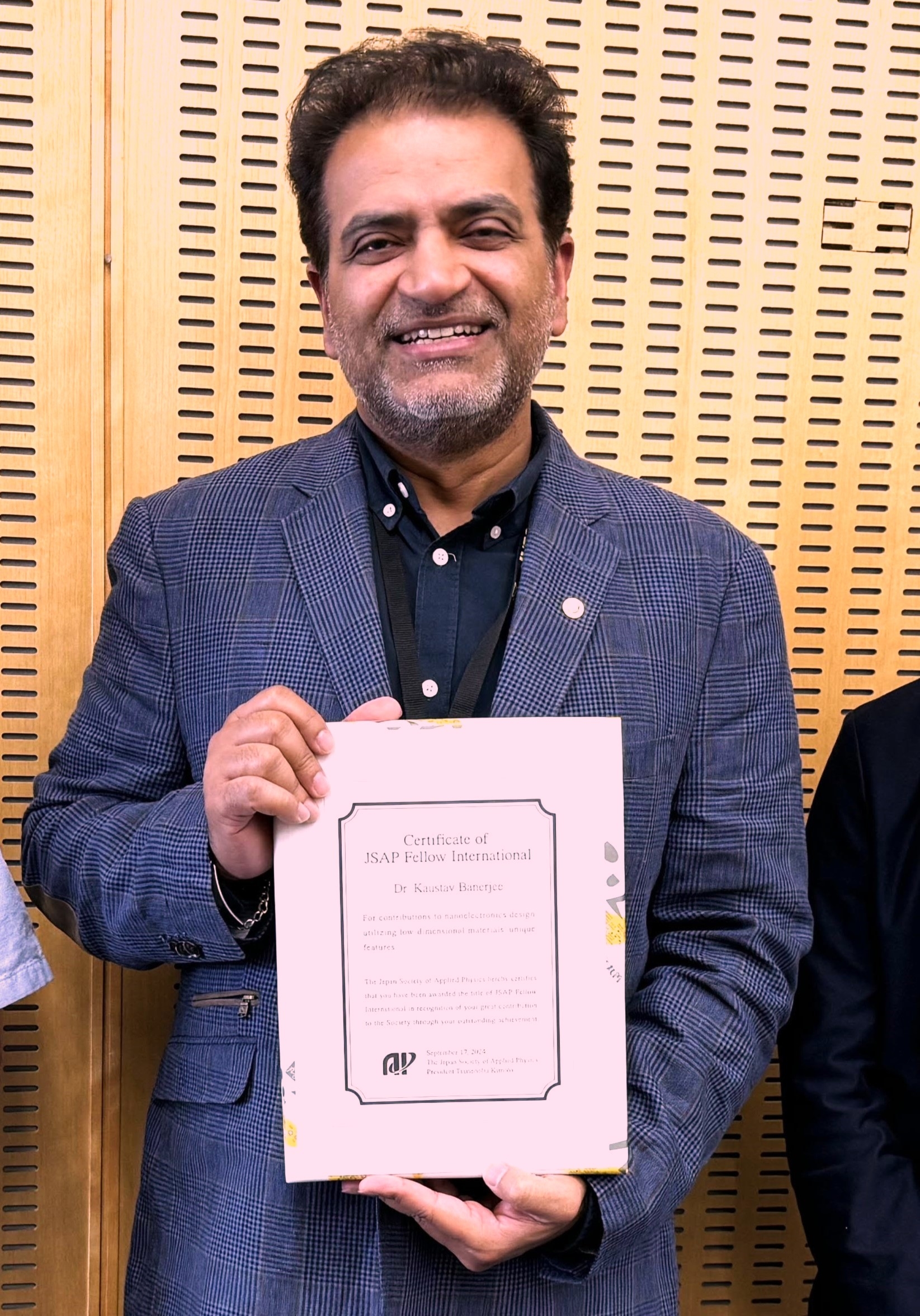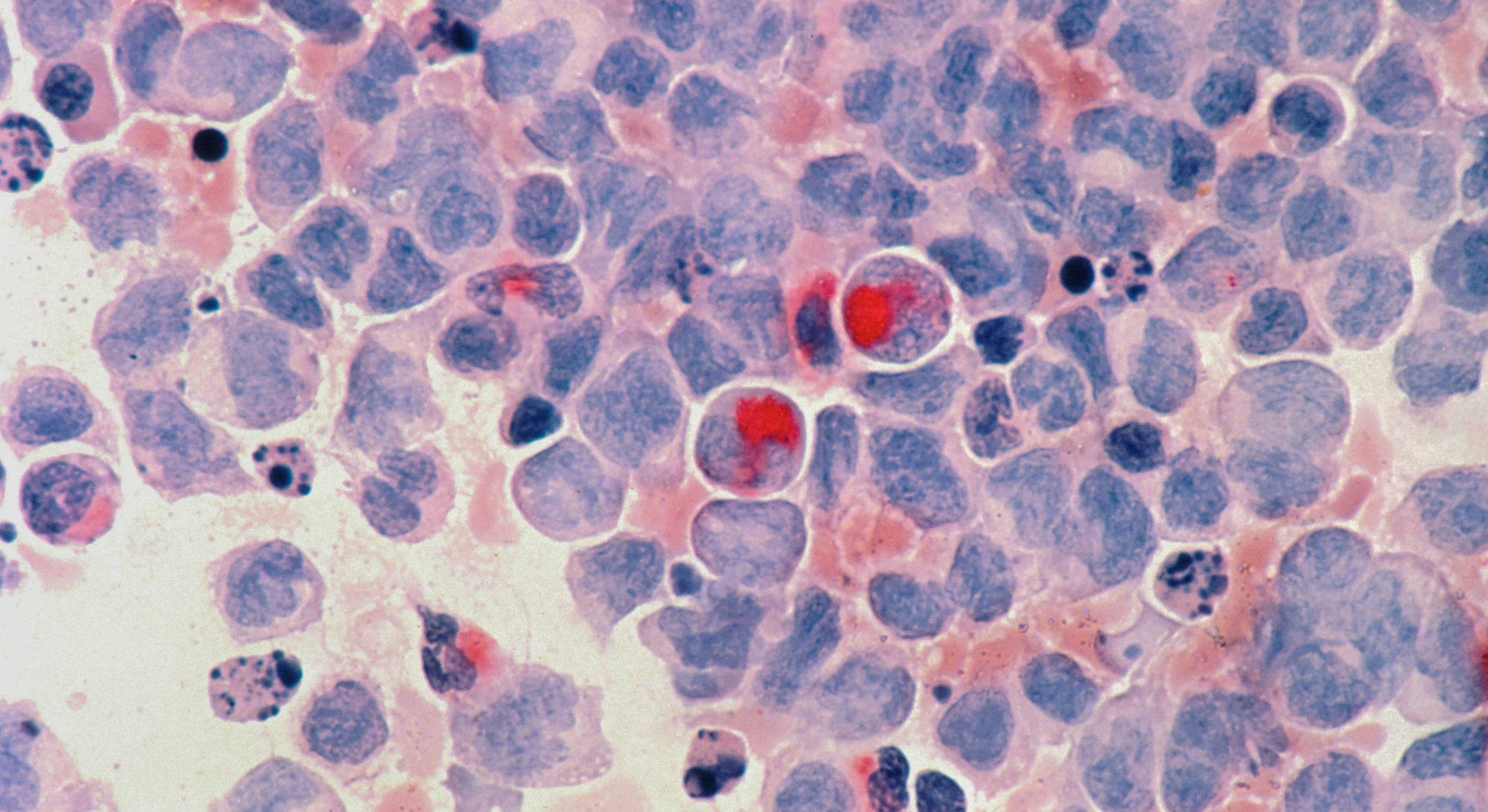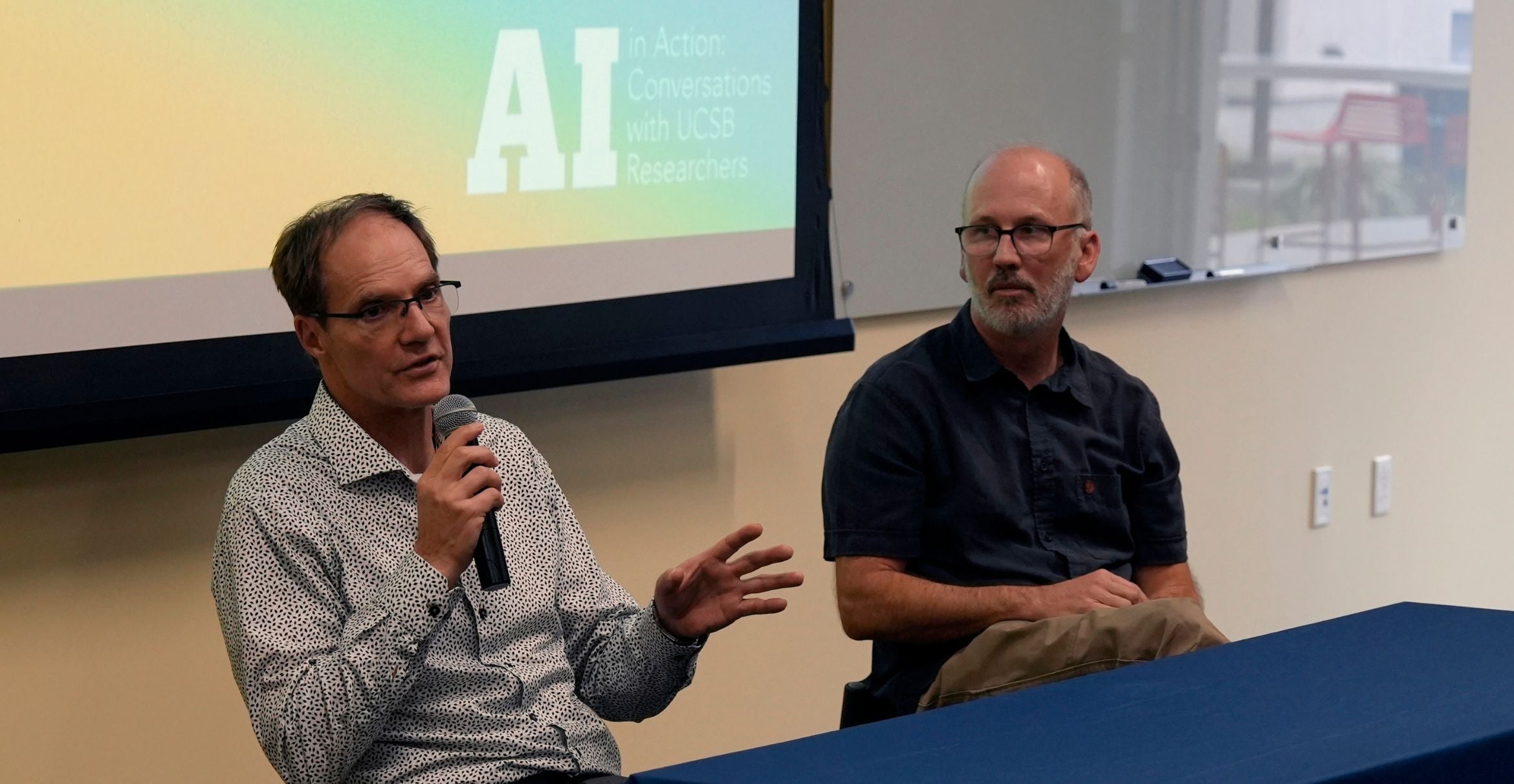
Kaustav Banerjee, a professor of electrical and computer engineering at UC Santa Barbara, and director of the campus’s Nanoelectronics Research Laboratory, has been elected by the Japan Society of Applied Physics (JSAP) as a 2024 JSAP Fellow International for his "contributions to nanoelectronics design utilizing low-dimensional materials’ unique features."
Banerjee is one of two researchers worldwide to receive this distinguished honor this year, and among only 31 recipients to date. He is the third faculty member from UCSB to be named a JSAP Fellow after Nobel Laureate Shuji Nakamura, a professor of materials and electrical and computer engineering, in 2008, and College of Engineering Dean Umesh Mishra, a professor of electrical and computer engineering, in 2013.

Banerjee’s selection was announced by the JSAP President Tsunenobu Kimoto. He was publicly honored in September at an awards ceremony at the 85th Annual JSAP Autumn Meeting in Niigata, Japan, and gave a commemorative lecture, “2D Materials - Powering the Next Era of Energy-Efficient Electronics.”
“The JSAP Fellow International title is awarded to truly exceptional scientists from outside Japan,” Kimoto said. “Professor Kaustav Banerjee is a trailblazer in the field of 2D materials, particularly for his pioneering work in uncovering their unique applications in nanoelectronics. His innovations are pivotal in driving the advancement of next-generation integrated electronics.”
A UCSB faculty member since 2002, Banerjee is an internationally acclaimed leader in nanoelectronics. His pioneering work on three-dimensional (3D) integrated circuits (ICs) has revolutionized the energy efficiency of ICs, providing a cost-effective platform for "heterogeneous integration" of diverse electronic materials, devices and technologies, leading to remarkable increases in functionality and integration density, now manifesting commercially as 3D ICs and chiplets. Additionally, his advancements with 2D van der Waals materials and heterostructures have helped transcend fundamental barriers in microelectronics miniaturization, paving the way for the next generation of energy-efficient electronics.
“I am deeply honored to be named a JSAP Fellow International and to stand alongside such distinguished past laureates,” Banerjee said. “This recognition reflects the vital importance of advancing low-dimensional materials for future energy-efficient electronics, which I believe will profoundly benefit both the global environment and society. I sincerely thank the JSAP for making me a part of their history.”
Banerjee is an elected fellow of the Institute of Electrical and Electronics Engineers, the American Association for the Advancement of Science, the American Physical Society, the Japan Society for the Promotion of Science, and the International Artificial Intelligence Industry Alliance. He has been recognized as a Highly Cited Researcher by the Web of Science (Clarivate Analytics), and has received the prestigious Bessel Prize from the Humboldt Foundation, as well as an IEEE technical field award, the Kiyo Tomiyasu Award, in recognition of his exceptional contributions to nano- materials and electronics.
The JSAP Fellow International Award was established in 2012 to recognize researchers living outside of Japan who have made remarkable contributions to the progress of applied physics through international activities related to JSAP. With over 20,000 members, JSAP is the premier organization dedicated to the advancement of science and technology at large in Japan. JSAP was established in 1946 and serves as an academic interface between science and engineering and an interactive platform for academia and industry. The society’s interests cover a broad variety of scientific and technological fields, and JSAP continues to explore state-of-the-art and interdisciplinary topics.



